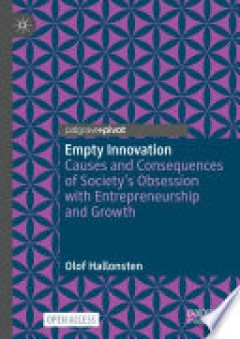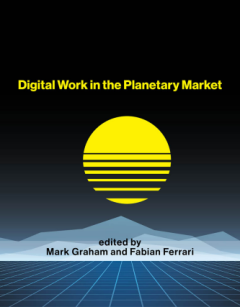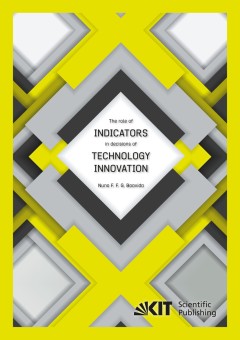Filter by

Harnessing public research for innovation in the 21st century: an internation…
Universities and public research institutes play a key role in the innovation ecosystem. Many countries have implemented national strategies to support the commercialization of knowledge produced by public institutions, to help take their innovations and scientific breakthroughs to market and ultimately boost economic growth. Research bodies themselves have also introduced practices to support …
- Edition
- -
- ISBN/ISSN
- 9781108842792
- Collation
- 544 p
- Series Title
- Intellectual property, innovation and economic development
- Call Number
- 607.2 ARU h

Cultural-historical perspectives on collective intelligence: patterns in prob…
In the new era of digital communication, collective problem solving is increasingly important. With the internet and digitalization of information, large groups can now solve problems together in completely different ways than are possible in offline settings (Le?vy, 1999). These novel online technologies and practices challenge our conceptions of individualized human problem solving in various…
- Edition
- -
- ISBN/ISSN
- 9781108981361
- Collation
- 468 p
- Series Title
- Current perspectives in social and behavioral sciences
- Call Number
- 337.3 BAL c

Empty innovation : causes and consequences of society's obsession with intrep…
Innovation is generally viewed as something inherently good, a source of progress and prosperity in our society. But innovation can also have negative, unintended, and wasteful effects, if policies are misdirected and organizations pursue innovation to look good and convey a message, rather than to actually achieve improvements of technologies, services, and products. This book makes the case t…
- Edition
- 1
- ISBN/ISSN
- 9783031314797
- Collation
- v, 120p
- Series Title
- -
- Call Number
- 352 OLO e

Understanding Energy Innovation : Learning from Smart Grid Experiments
This open access book uses smart grids to explore and better understand energy innovation, from a social science perspective. Understanding Energy Innovation has four core themes—networks, nodes, narratives and nostalgia—and each chapter tackles a theme, using case studies from Australia and Europe. Energy innovation is currently occurring at a rapid pace, in response to a host of problems …
- Edition
- -
- ISBN/ISSN
- 9789811662539
- Collation
- 101p
- Series Title
- -
- Call Number
- 621.31 LOV

Dimensione didattica, tecnologica e organizzativa. La costruzione del process…
Volume pertama dari proyek editorial dibagi menjadi dua karya: ini didedikasikan untuk hubungan antara dimensi metodologis-didaktik, teknologi dan organisasi dalam proses inovasi sekolah; yang kedua didedikasikan untuk guru pendidikan inklusif dan peran teknologi dalam layanan penilaian keterampilan dan bimbingan karir. Tujuan dari kedua karya tersebut sama: mengumpulkan refleksi dan mendukung …
- Edition
- 2
- ISBN/ISSN
- 1030823026
- Collation
- 226 p
- Series Title
- Media e tecnologie per la didattica - Open Access, 1
- Call Number
- 370

The realities and futures of work
What do we know about the current realities of work and its likely futures? What choices must we make and how will they affect those futures? Many books about the future of work start by talking about the latest technology, and focus on how technology is going to change the way we work. And there is no doubt that technology will have huge impacts. However, to really understand the direction in …
- Edition
- -
- ISBN/ISSN
- 9781760463113
- Collation
- xvi + 406 p
- Series Title
- -
- Call Number
- 331 PEE r

Root, tuber and banana food system innovations : value creation for inclusive…
This open access book describes recent innovations in food systems based on root, tuber and banana crops in developing countries. These innovations respond to many of the challenges facing these vital crops, linked to their vegetative seed and bulky and perishable produce. The innovations create value, food, jobs and new sources of income while improving the wellbeing and quality of life of the…
- Edition
- -
- ISBN/ISSN
- 9783030920227
- Collation
- XXXV, 561 p
- Series Title
- -
- Call Number
- 633.091724 THI r

Motivations associated with food choices and eating practices
This book is generally focused on food choice and which factors are associated with the decisions that define people’s eating behaviour. These factor are highly variable and include influences from the surrounding environment as well as the individual characteristics of each person. The book includes a number of chapters that address these issues from different points of view. Some explore th…
- Edition
- -
- ISBN/ISSN
- 9783036514130
- Collation
- ix, 253p.: ill
- Series Title
- -
- Call Number
- -

Digital work in the planetary market
Understanding the embedded and disembedded, material and immaterial, territorialized and deterritorialized natures of digital work. Many jobs today can be done from anywhere. Digital technology and widespread internet connectivity allow almost anyone, anywhere, to connect to anyone else to communicate and exchange files, data, video, and audio. In other words, work can be deterritorialized at a…
- Edition
- -
- ISBN/ISSN
- 9780262543767
- Collation
- viii, 356p. : ill
- Series Title
- -
- Call Number
- 306.36 DIG d

The role of indicators in decisions of technology innovation
There are thousands of indicators produced to understand and govern our societies. Studies about the way indicators are used in technological innovation are significantly rare, despite the centrality of these decisions to promote growth in our technology-intensive civilization. This book presents what is known and what was discovered in a doctoral research, which analysed innovative business le…
- Edition
- -
- ISBN/ISSN
- 9783731504788
- Collation
- xi, 247 p.; ill
- Series Title
- -
- Call Number
- 650 BOA
 Computer Science, Information & General Works
Computer Science, Information & General Works  Philosophy & Psychology
Philosophy & Psychology  Religion
Religion  Social Sciences
Social Sciences  Language
Language  Pure Science
Pure Science  Applied Sciences
Applied Sciences  Art & Recreation
Art & Recreation  Literature
Literature  History & Geography
History & Geography